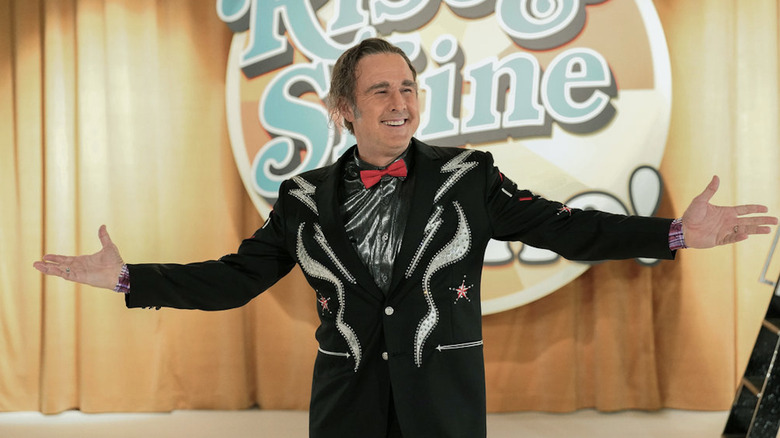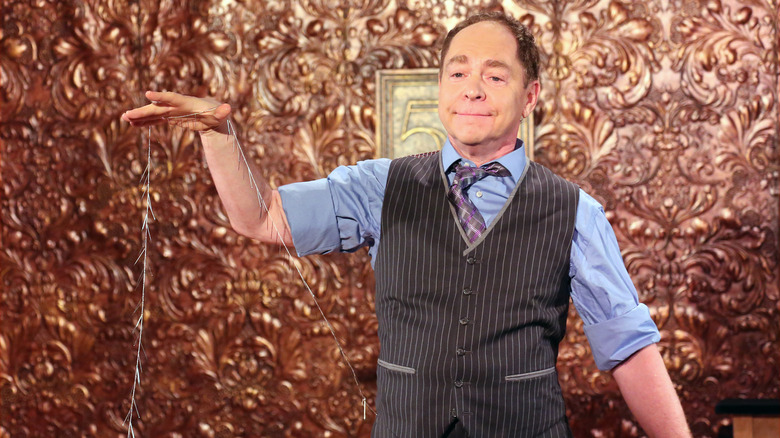Mrs. Davis: Teller (Of Penn & Teller Fame) Weighs In On That Vat Of Acid Trick
In Peacock's "Mrs. Davis," the all-knowing, all-powerful AI at the center of the series is a threat to all things that require a suspension of disbelief. Most plainly, it's set up in direct opposition to faith, but it's also a threat to the art of magic, much to career magician Montgomery Abbott's (David Arquette) chagrin. "It's more than a computer. It's the answer to all of life's questions," Monty warns his daughter Simone (Betty Gilpin) when he visits her at the nunnery. "If she could destroy magic, what makes you think a place like this wouldn't be next?"
In an effort to save magic from an algorithm that can explain any trick to the audience, Monty develops the Lazarus Shroud trick, in which he is submerged in a vat of acid. For assistance on the stunt, as well as all things magical in "Mrs. Davis," the producers enlisted Teller of Penn & Teller fame as a magic consultant.
"They had thought that maybe there was a way to drop somebody actually into a vat of acid and have that person go away without any injury," Teller told Polygon. But the famed magician knew better, owing to his own experience with death-defying stunts. "As one who has done the bullet catch, I can tell you those life and death things are not things you mess with."
Teller worked as the show's magic consultant
Teller has been performing magic since the 1970s, and for his vast knowledge of magic and dazzling sleight of hand, he's earned 10 Emmy nominations. It's no surprise, then, that Teller tackled the Episode 6 acid vat scene with great care. The animated sequence is mapped out, as if by a detailed technician.
For Teller, who designed the show's magic performances and okayed all the terminology, it was crucial that the scenes involving magic were given the weight and attention they deserved, considering the discipline's foundational role in the series. "[The creators are] very conscious that they're using a cheesy magic act that needs to feel real, as a sort of central metaphor, to tie all of these different themes of religion and stuff together," Teller said in his interview with Polygon. "So it seemed to them — and I agree with them totally — important to take it as a level of reality that is not customarily taken in the cinema and television."
It's safe to say that there's a lot going on in "Mrs. Davis," whether it be self-conscious cowboys, underground resistance groups, or an otherworldly falafel restaurant. The inclusion of magic is certainly playful, but it also suits the bonkers, escapism of "Mrs. Davis." "Magic is this, this very curious art form, right?" Teller continued. "It's an art form in which it's not really comfortable, in a way that this show is not exactly comfortable."

